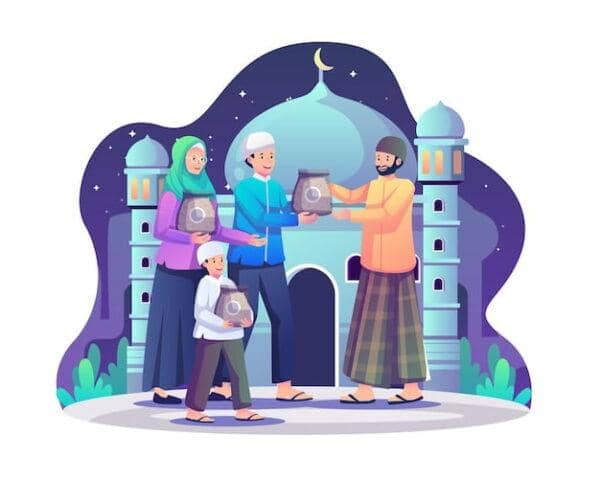Zakat al-Fitra is a special form of charity given by Muslims during the holy month of Ramadan. Traditionally, it has been given in the form of staple food items, but with the rise of digital currencies like Bitcoin, Muslims are now able to pay Zakat al-Fitra with this new form of currency.
Bitcoin is a decentralized digital currency that operates independently of any government or financial institution. It allows for secure and fast transactions that are recorded on a public ledger known as the blockchain. Bitcoin has gained popularity among Muslims as a means of payment for Zakat al-Fitra, as it provides a convenient and transparent way to contribute to charitable causes.
Paying Zakat al-Fitra with Bitcoin requires Muslims to choose a reputable Zakat organization or religious authority and send the Bitcoin amount to their digital wallet address. This ensures that the Zakat al-Fitra contribution is delivered directly to the intended recipient and can be tracked every step of the way.
One of the advantages of paying Zakat al-Fitra with Bitcoin is the transparency of the transaction. The blockchain technology used in Bitcoin allows for every transaction to be recorded and verified, providing a level of transparency and accountability that is not possible with traditional forms of payment. This ensures that the Zakat al-Fitra contribution is delivered directly to the intended recipient and can be tracked every step of the way.
Another advantage of paying Zakat al-Fitra with Bitcoin is the convenience it provides. With Bitcoin, Muslims can contribute to Zakat al-Fitra from anywhere in the world at any time, without the need for a third-party intermediary or a physical presence. This makes it easier for Muslims to fulfill their religious obligations and contribute to the betterment of their community.
In conclusion, paying Zakat al-Fitra with Bitcoin is an innovative and convenient way for Muslims to fulfill their religious obligations and contribute to charitable causes. It provides a transparent and secure means of contributing to Zakat al-Fitra, and allows Muslims to contribute to the development of their community in a meaningful way. As the use of digital currencies continues to grow, paying Zakat al-Fitra with Bitcoin will become increasingly popular among Muslims worldwide. May Allah accept the Zakat al-Fitra contributions and good deeds of all Muslims during this holy month.












